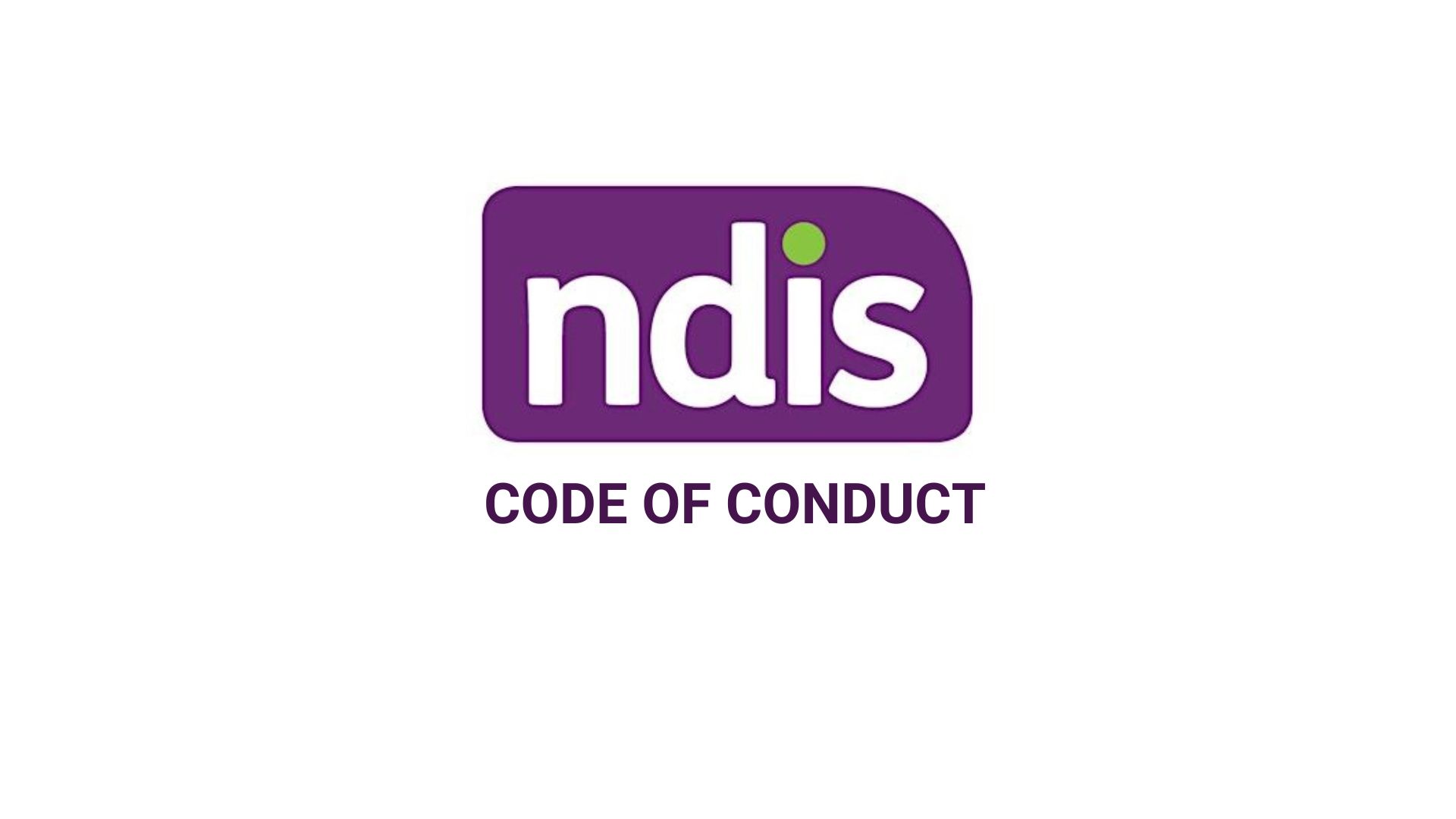Your Guide to NDIS Funding for Autism

Introduction
NDIS funding for autism is an Australian government initiative designed to provide financial support and services to individuals living with disabilities, including autism. The National Disability Insurance Scheme (NDIS) aims to enhance the quality of life and social participation of these individuals by offering tailored support to meet their unique needs. Navigating the NDIS can be complex, but understanding the eligibility criteria, application process, and types of funded supports available can significantly simplify the journey.
This comprehensive guide is designed to help you make the most of NDIS funding for autism. We will cover everything from the basic eligibility requirements and detailed application steps to managing your NDIS plan effectively. Additionally, we will explore the various supports available, including therapies, assistive technologies, and home modifications, as well as the specific benefits for children under 9 through the Early Childhood Approach.
Whether you are a parent seeking support for your child or an adult with autism looking to enhance your independence, this guide provides the essential information and resources needed to navigate the NDIS successfully. For personalized assistance, consider consulting with NDIS support coordinators and professional plan managers who can help tailor the support to your specific needs and goals.
Beneficiary Testimonials
The NDIS has transformed the lives of many individuals with autism and their families across Australia. Here are some testimonials illustrating the positive impact of this program.
Improvement in Social Life and Communication Skills
A parent of a child with autism shared their positive experience with NDIS funding. Thanks to this support, their child could attend regular sessions of behavioural therapy and speech therapy. These interventions significantly improved the child’s communication skills and social interactions, facilitating their integration at school and participation in community activities. The parent noted that these supports have increased their child’s self-confidence and independence.
Support for Employment and Independence
An adult with autism explained how the NDIS helped them secure a job and live more independently. With the assistance of a plan manager and support coordinator, they identified their career goals and found suitable training programs. NDIS funding enabled them to receive ongoing support to maintain their employment. This support was crucial in overcoming the challenges associated with autism and succeeding in their work environment.
Early Intervention and Child Development
Another family benefited from the NDIS Early Childhood Approach for their child under nine. They accessed occupational therapy and psychological support services, significantly enhancing their child’s daily living skills and emotional regulation. The family also received guidance on better supporting their child at home and in social environments, promoting better inclusion and participation in the community.
These testimonials demonstrate how NDIS funding can make a real difference in the lives of individuals with autism and their families, providing them with the tools and support needed to improve their quality of life and independence.
Eligibility Criteria

Accessing NDIS funding involves meeting specific eligibility criteria designed to ensure that the support reaches those who need it most. To qualify for NDIS funding, applicants must:
- Be between 7 and 65 years old
- Reside in Australia as citizens or permanent residents
- Have a significant and permanent disability that impacts their daily life and requires substantial support
For individuals with autism, eligibility is further assessed based on the severity of the condition, classified into three levels according to the Diagnostic and Statistical Manual of Mental Disorders (DSM-5):
ASD Level 1: Requiring Support
Individuals with Level 1 autism require support to manage difficulties in social interactions and organizational skills. They may need help with planning, and executing daily tasks, and often benefit from interventions that address social communication challenges.
ASD Level 2: Requiring Substantial Support
Those diagnosed with Level 2 autism need substantial support due to more pronounced social and communication difficulties. This level typically involves significant challenges in verbal and non-verbal communication, as well as repetitive behaviors and restricted interests, necessitating extensive therapeutic interventions.
ASD Level 3: Requiring Very Substantial Support
Level 3 autism is the most severe form, where individuals require very substantial support. They face profound difficulties in social communication and interaction, along with highly restrictive and repetitive behaviors. These individuals often need intensive, ongoing support across various aspects of daily life.
Understanding these levels is crucial for determining the appropriate supports and services needed. The NDIS aims to provide personalized assistance based on the specific needs identified through these assessments. By meeting these eligibility criteria, individuals with autism can access a range of supports designed to enhance their quality of life and independence.
For more detailed information on NDIS eligibility and the application process, visit the official NDIS website or consult with a qualified NDIS support coordinator.
Application Process

Applying for NDIS funding is a structured process that requires careful preparation and documentation. Understanding the steps involved can help ensure a smoother application experience and increase the likelihood of receiving the necessary support. Here is a detailed guide to the NDIS application process:
Step 1: Initial Contact
Begin by contacting the NDIS through their official website or by calling their helpline at 1800 800 110. You will need to express your interest in accessing NDIS funding and request an Access Request Form (ARF).
Step 2: Completing the Access Request Form
The Access Request Form is a critical component of the application process. This form requires detailed information about your condition, how it impacts your daily life, and the types of support you need. Be thorough and precise when filling out this form.
- Personal Details: Provide your personal information, including age, residency status, and contact details.
- Disability Information: Describe your disability, including medical diagnoses and assessments.
- Impact on Daily Life: Detail how your disability affects your daily activities and overall quality of life.
Step 3: Gathering Supporting Documentation
Supporting documentation is essential for validating your application. Ensure you gather recent and comprehensive medical reports, assessments from healthcare professionals (such as psychologists, paediatricians, or psychiatrists), and any other relevant documents that illustrate the impact of your disability.
Step 4: Submitting Your Application
Once you have completed the Access Request Form and collected all necessary documentation, submit your application to the NDIS. You can do this via mail or online through the NDIS portal.
Step 5: Application Review
After submission, your application will be reviewed by the NDIS. They will assess your eligibility based on the information and documentation provided. You may be contacted for additional information or clarification during this process.
Step 6: Planning Meeting
If your application is successful, you will be invited to attend a planning meeting with an NDIS planner. This meeting is crucial for developing your personalized NDIS plan. During the meeting, you will discuss your goals, needs, and the supports required to achieve them.
- Preparing for the Meeting: Think about your short-term and long-term goals and the types of support you need to achieve them.
- During the Meeting: Be open and honest about your needs and challenges. The more information you provide, the better your NDIS plan can be tailored to your requirements.
Step 7: Receiving Your NDIS Plan
After the planning meeting, your NDIS plan will be finalized and provided to you. This plan will outline the funded supports and services you are eligible to receive. Review the plan carefully to ensure it meets your needs.
For a more detailed guide on the application process, visit the official NDIS website. Understanding the application process thoroughly can help ensure a smoother experience and increase the likelihood of receiving the appropriate support.
Types of Funded Supports

The NDIS provides funding for a wide range of supports to assist individuals with autism in their daily lives. These supports are designed to address various aspects of living with autism and are tailored to meet the unique needs of each participant. Here are the main types of funded supports available through the NDIS:
Therapies Covered by NDIS
Therapeutic supports are crucial for individuals with autism to improve their skills and overall well-being. The NDIS funds various therapies, including:
- Speech Therapy: Helps individuals improve their verbal and non-verbal communication skills. This can include articulation, understanding language, and social communication.
- Occupational Therapy: Focuses on enhancing the individual’s ability to perform daily activities. This can involve developing fine motor skills, sensory integration, and adaptive techniques for daily living tasks.
- Psychological Services: Provides behavioral and emotional support. This can include strategies for managing anxiety, improving social interactions, and developing coping mechanisms.
Assistive Technology and Equipment
The NDIS also funds assistive technology and equipment to help individuals with autism lead more independent lives. Examples include:
- Communication Devices: Tools such as speech-generating devices or communication apps that help non-verbal individuals communicate more effectively.
- Sensory Equipment: Items like weighted blankets or sensory toys that can help manage sensory processing issues.
- Adaptive Equipment: Specialized utensils, seating, or mobility aids that facilitate daily activities and improve comfort.
Home Modifications
To enhance accessibility and safety at home, the NDIS provides funding for various home modifications, including:
- Structural Changes: Modifications such as installing ramps, widening doorways, or adapting bathrooms to make them more accessible.
- Sensory-friendly Adaptations: Adjustments like creating sensory-friendly spaces or modifying lighting to accommodate sensory sensitivities.
Support for Social and Economic Participation
The NDIS supports individuals with autism in engaging with their communities and participating in economic activities. This includes:
- Social Skills Programs: Programs designed to improve social interactions and build relationships.
- Employment Support: Assistance with job training, finding employment, and workplace accommodations.
- Community Participation: Funding for activities that promote community involvement and social inclusion, such as group activities or community events.
Each type of support is tailored to meet the specific needs of the individual, ensuring comprehensive assistance that enhances their overall well-being and independence. Understanding the types of supports available can help you make the most of your NDIS plan.
For more detailed information on the types of funded supports, visit the official NDIS website.
Managing Your Funding

Once you receive NDIS funding, effectively managing it is crucial to maximizing the benefits. There are three primary options for managing your NDIS plan, each offering different levels of control and support. Understanding these options will help you choose the best one for your needs:
Self-Management
Self-management gives you the most control over your NDIS funds, allowing you to choose and pay for services directly. This option offers the greatest flexibility but requires careful record-keeping and financial management. Key advantages include:
- Choice and Control: You can select any provider, even if they are not NDIS registered.
- Flexibility: You can negotiate prices and tailor services to better meet your needs.
- Responsibility: You must manage the administrative tasks, such as tracking expenses and ensuring compliance with NDIS guidelines.
Plan Management
Plan management involves hiring a professional plan manager who handles the financial and administrative aspects of your NDIS plan. This option provides support while still offering some flexibility. Benefits of plan management include:
- Administrative Support: The plan manager handles paperwork, payments, and record-keeping.
- Provider Flexibility: You can choose both NDIS registered and non-registered providers.
- Budget Tracking: Plan managers assist in monitoring and managing your NDIS budget to ensure funds are used effectively.
Agency Management
With agency management, the NDIS directly manages your funds and pays your providers. This option is the most straightforward but offers the least flexibility. Key features include:
- Simplicity: The NDIS handles all financial transactions and administrative tasks.
- Limited Provider Choice: You can only use NDIS registered providers.
- Ease of Use: Ideal for those who prefer a hands-off approach to managing their funds.
Advantages and Disadvantages
Each management option has its pros and cons. Consider the following when deciding which is best for you:
- Self-Management: Offers maximum control but requires significant administrative effort.
- Plan Management: Balances support and flexibility but may involve management fees.
- Agency Management: Simplifies the process but restricts provider choices.
Choosing the right management option depends on your personal preferences, needs, and ability to handle administrative tasks. For more information on managing your NDIS funds and assistance in choosing the best option, visit the official NDIS website.
Support for Children Under 9

The NDIS offers specialized support for children under the age of 9 through the Early Childhood Approach. This program is designed to provide early intervention services that can significantly benefit young children with developmental delays or disabilities, including autism. Here’s an overview of how the Early Childhood Approach works:
Early Childhood Approach
The Early Childhood Approach replaces the former Early Childhood Early Intervention (ECEI) program and aims to support children under 9 years old with developmental concerns. The focus is on providing timely, comprehensive support to enhance the child’s development and participation in everyday activities. Key aspects include:
- Developmental Support: Early intervention services are tailored to meet the specific developmental needs of each child, helping them achieve their full potential.
- Family Support: The program also provides support and guidance to families, helping them better understand and respond to their child’s needs.
- Access to Services: Children can access a range of therapeutic services, including speech therapy, occupational therapy, and psychological support.
Benefits of Early Intervention
Early intervention is crucial for children with autism as it can lead to significant improvements in their developmental outcomes. Benefits include:
- Improved Communication: Early speech therapy can help enhance a child’s verbal and non-verbal communication skills.
- Enhanced Social Skills: Interventions can assist in developing better social interactions and relationships with peers.
- Increased Independence: Occupational therapy can help children develop essential daily living skills, fostering greater independence.
- Behavioral Management: Psychological support can provide strategies to manage behaviors and improve emotional regulation.
Examples of Early Intervention Services
Specific services available through the Early Childhood Approach include:
- Speech Therapy: Helps with language development and communication skills.
- Occupational Therapy: Assists with fine motor skills, sensory processing, and daily living activities.
- Psychological Services: Offers behavioral and emotional support to manage challenges associated with autism.
- Family Support Programs: Provides education and resources for families to better support their child’s development.
For more detailed information on the Early Childhood Approach and how to access these services, visit the official NDIS website. Early access to these services is crucial in helping children reach their full potential and achieve better long-term outcomes.
Finding NDIS Service Providers

Locating the right service providers is essential for making the most of your NDIS funding. The NDIS offers several tools and resources to help you find and choose suitable providers. Here are some strategies and tips to guide you through the process:
Using the Disability Support Finder
The NDIS Disability Support Finder is an online tool designed to help participants search for registered providers in their area. This tool allows you to filter providers based on the services they offer, their location, and other relevant criteria. Here’s how to use it:
- Access the Tool: Visit the NDIS website and navigate to the Disability Support Finder.
- Search by Location: Enter your location to find providers near you.
- Filter by Service: Use filters to narrow down providers based on the specific services you need, such as speech therapy, occupational therapy, or assistive technology.
Tips for Choosing the Right Providers
Choosing the right service providers is crucial to ensuring you receive the best possible support. Consider the following tips when selecting providers:
- Check Credentials: Ensure that the provider is registered with the NDIS and has the necessary qualifications and experience.
- Read Reviews: Look for reviews and testimonials from other NDIS participants to gauge the provider’s reputation and quality of service.
- Visit the Provider: If possible, visit the provider’s facility to see their setup and meet their staff.
- Ask Questions: Don’t hesitate to ask providers about their experience with NDIS participants, the services they offer, and their approach to support.
Registered vs. Non-Registered Providers
Understanding the difference between registered and non-registered NDIS providers can help you make informed decisions:
- Registered Providers: These providers have met the NDIS quality and safety standards. They are listed on the NDIS provider registry and can be found using the Disability Support Finder.
- Non-Registered Providers: These providers are not registered with the NDIS but can still offer services to self-managed or plan-managed participants. They may offer more flexibility in terms of pricing and service options.
Choosing between registered and non-registered providers depends on your management style and specific needs. Both options have their advantages, so it’s essential to evaluate them based on your circumstances.
The Role of Plan Managers
Plan managers play a crucial role in helping NDIS participants manage their funding effectively. They assist with the financial and administrative aspects of an NDIS plan, ensuring that payments are made correctly and on time. This allows participants to focus on their goals without the added stress of managing finances. Here’s a detailed look at what plan managers do and how they can benefit you:
What Plan Managers Do
Plan managers provide a range of services to help you manage your NDIS funding, including:
- Financial Management: Handling the financial transactions related to your NDIS plan, including paying providers and keeping track of expenses.
- Budget Tracking: Monitoring your NDIS budget to ensure funds are used appropriately and effectively.
- Record Keeping: Maintaining detailed records of all transactions and expenditures to ensure compliance with NDIS guidelines.
- Provider Liaison: Communicating with service providers to coordinate services and ensure timely payments.
Benefits of Using a Plan Manager
Using a plan manager can offer several advantages, particularly for those who find managing their NDIS funding challenging:
- Reduced Administrative Burden: Plan managers take care of the paperwork and administrative tasks, allowing you to focus on your support and goals.
- Expertise and Advice: They offer professional advice on how to best use your NDIS funds and can help you navigate the system more effectively.
- Flexibility in Provider Choice: Plan-managed participants can use both NDIS registered and non-registered providers, offering greater flexibility.
- Compliance Assurance: Plan managers ensure that all expenditures comply with NDIS guidelines, reducing the risk of funding misuse.
How to Choose a Plan Manager
Choosing the right plan manager is crucial to maximizing the benefits of your NDIS plan. Consider the following factors when selecting a plan manager:
- Experience and Expertise: Look for plan managers with extensive experience and knowledge of the NDIS.
- Reputation: Research reviews and testimonials from other NDIS participants to gauge the plan manager’s reliability and service quality.
- Services Offered: Ensure the plan manager offers the specific services you need and can support your unique requirements.
- Communication: Choose a plan manager who communicates clearly and regularly updates you on your budget and expenses.
For more detailed information on plan managers and how to find one, visit the official NDIS website. Utilizing a plan manager can streamline the management of your NDIS funds and help you achieve your goals more effectively.
Conclusion
The NDIS provides vital support for individuals with autism, offering funding for various services and resources to enhance their quality of life. Understanding the eligibility criteria, application process, types of funded supports, and options for managing your funding is essential to making the most of the NDIS.
Additionally, early intervention programs and the assistance of plan managers can significantly benefit participants. By leveraging these supports, individuals with autism can achieve greater independence and participate more fully in their communities.
Remember to utilize the various resources available to you, including the NDIS website, support coordinators, and professional plan managers. These resources can help you navigate the NDIS process more effectively and ensure you receive the support you need.
For more detailed information and personalized assistance, consider reaching out to NDIS support coordinators or professional plan managers. They can help you navigate the process and maximize the benefits of your NDIS plan.
Additional Resources
For more information on how to navigate the NDIS and maximize the benefits for individuals with autism, several resources are available. These resources provide detailed guides, support communities, and professional assistance to help you make the most of your NDIS funding:
- NDIS Official Website: The official NDIS website offers comprehensive guides, policy updates, and detailed information on the application process, eligibility criteria, and types of funded supports.
- Autism Spectrum Australia (Aspect): This organization provides resources, support groups, and information on various autism services and interventions.
- NDSP Plan Managers: Professional plan managers who can assist with the financial and administrative aspects of your NDIS plan, ensuring you make the most of your funding.
- AbilityX: Offers resources and guides on understanding and applying for NDIS funding for autism, including detailed information on ASD levels and eligibility.
- HeyHubble: Provides information on NDIS funding, support categories, and tips for managing your plan effectively.
- Sonic Learning: Offers online learning programs and resources to help individuals with autism improve their cognitive and social skills.
- Interested in exploring NDIS business opportunities? Explore Available NDIS Businesses



